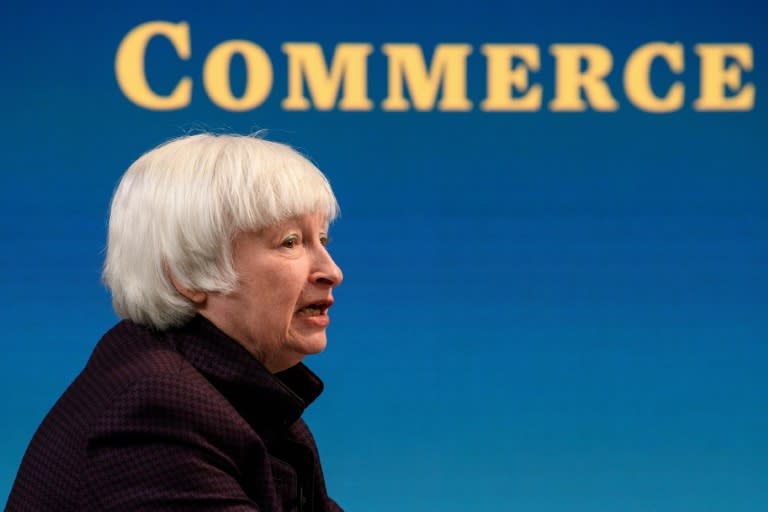U.S. Treasury Secretary Janet Yellen told her G20 colleagues on Friday that Washington is abandoning pressure for a controversial provision in a global digital tax, opening the door to a likely deal.
The shift in the US – part of President Joe Biden’s broader repositioning of former President Donald Trump’s “America First” agenda – garnered immediate praise from Germany and France, who said a deal is now “in reach” after the pivot of the USA.
Yellen announced at the G20 finance ministers’ meeting that American officials “will be heavily involved” in the negotiations and “are no longer advocating the implementation of Pillar 1 ‘safe haven’,” a Treasury official told AFP.
The Trump administration insisted on a so-called safe harbor clause in the OECD tax that would effectively have allowed large technology companies to voluntarily comply, blocking the progress of a business.
The Organization for Economic Cooperation and Development is working on a multilateral agreement that would include a minimum global corporate tax rate for technology giants.
The goal is to find a common solution to resolve the policy dilemma of how to tax profits earned in one country by a company based in another that offers more favorable tax treatment.
European officials said the move in the US was a major step forward.
“This is a giant step on our way towards an agreement between the participating states by the summer,” German Finance Minister Olaf Scholz said in a statement after virtual talks with his G20 counterparts.
French Economy Minister Bruno Le Maire said an agreement must be reached by summer, calling for negotiations to be “concluded without delay”.
France in 2019 passed a tax on technology companies like Facebook, Amazon, Apple and Google, which were accused of transferring their profits abroad.
Paris suspended the collection of the tax on digital services until the end of 2020 amid OECD negotiations.
But the move drew harsh criticism from the Trump administration, which planned to enact tariffs on French products, but canceled the tariffs in early January before leaving Washington.
Yellen had signaled the likely change in the United States during his Senate confirmation hearing in January, saying he supported efforts to ensure that corporations pay their “fair share” and remove incentives for offshore activities.
In November, some 75 major technology companies, including Google and Facebook, supported a French initiative committing them to make a “fair tax contribution” in the countries in which they operate.
Without an agreement, companies risk a proliferation of national laws that could have led to double taxation.
hs-jmb / dw
